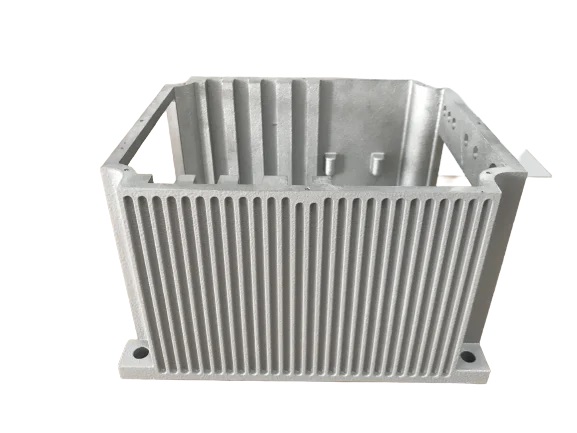The expertise that defines a professional Aluminum Casting Company
Ideal Practices for Maintenance and Applications in the Aluminum Shop Field: A Thorough Introduction
Maintaining tools in the aluminum shop market is crucial for functional success. Routine assessments and anticipating maintenance can significantly decrease downtime and improve safety. Advanced modern technologies, such as IoT and data analytics, play a pivotal role in this procedure. Nonetheless, recognizing the full extent of ideal practices requires a better examination of details methods and their effect on effectiveness. What are the essential elements that add to a trusted upkeep framework?
Relevance of Routine Maintenance in Light Weight Aluminum Foundries
Regular upkeep plays an important duty in the efficient procedure of aluminum factories. By methodically servicing and checking tools, factories guarantee peak performance and durability of machinery. Normal upkeep activities, such as component, lubrication, and cleansing replacement, help stop unexpected malfunctions that can lead to costly downtime.
Moreover, routine checks improve workplace safety and security by recognizing prospective hazards prior to they escalate right into serious issues. Equipment that is well-maintained operates better, causing improved item quality and lowered waste. In addition, adherence to an organized upkeep routine can sustain conformity with market policies, consequently cultivating an online reputation for reliability and top quality within the marketplace.
Executing Anticipating Maintenance Techniques
Anticipating maintenance strategies take the concepts of routine maintenance a step better by leveraging information analytics and progressed tracking innovations. In light weight aluminum shops, these methods enable operators to expect devices failures before they take place, consequently decreasing unexpected downtimes and enhancing operational effectiveness. By using sensors and IoT tools, real-time data can be collected on device performance, enabling the recognition of prospective issues with anticipating analytics.
Enhancing Melting and Putting Processes
Effective melting and pouring processes are important for taking full advantage of efficiency and assuring the high quality of aluminum castings. To boost these procedures, shops should focus on specific temperature level control throughout melting, as this directly affects the metallurgical residential or commercial properties of the alloy. Utilizing sophisticated melting technologies, such as induction and resistance melting, can improve energy performance and minimize cycle times.
In addition, implementing automated putting systems minimizes human error and keeps uniformity in the pouring process. Appropriate mold and mildew prep work, including adequate preheating, is necessary to prevent thermal shock and boost mold durability.

Enhancing Safety Protocols in Shop Procedures
Prioritizing safety and security in light weight aluminum shop operations is essential for shielding workers and assuring a productive setting. Reliable safety and security methods include routine training sessions that stress the relevance of personal safety tools (PPE), such as handwear covers, goggles, and helmets. Furthermore, the establishment of clear emergency procedures is important in handling potential crashes.
Routine examinations of tools and machinery assistance recognize hazards prior to they intensify into severe problems. Executing a robust reporting system urges workers to interact security concerns without fear of repercussion. Promoting a culture of safety guarantees that every staff member understands their role in keeping a safe and secure workplace.
Additionally, guaranteeing click for source correct ventilation and monitoring air top quality can reduce exposure to dangerous fumes and dirt. By strengthening these methods, aluminum foundries can significantly decrease the threat of mishaps and develop a setting where employees feel valued and secure, eventually boosting general functional performance.
Leveraging Innovation for Improved Efficiency
Making use of advanced technology has actually come to be increasingly necessary for light weight aluminum factories aiming to boost functional efficiency. Automation and robotics play a vital function in streamlining manufacturing procedures, minimizing labor prices, and minimizing human mistake. Applying real-time monitoring systems permits the continuous analysis of tools efficiency, making it see this site possible for proactive upkeep and minimizing downtime.
Moreover, the assimilation of information analytics offers important understandings into functional process, facilitating better decision-making and source appropriation. Predictive analytics can identify potential failings prior to they occur, more enhancing upkeep schedules.
In addition, taking on advanced melting and casting technologies enhances power effectiveness and material return, which are fundamental for sustainability in the sector. By embracing these technological innovations, light weight aluminum foundries can not just boost performance however likewise preserve an affordable side in an increasingly requiring market (aluminum metal casting). Inevitably, leveraging innovation is critical in driving technology and boosting general operational efficiency within the industry

Frequently Asked Inquiries
What Prevail Indicators of Equipment Use in Light Weight Aluminum Foundries?
Common indications of devices wear in light weight aluminum factories include uncommon noises, lowered effectiveness, increased resonance, overheating components, leakages, and visible rust. These indicators usually signify the demand for upkeep or prospective replacement to avoid pricey downtime.
Just How Can I Train Personnel for Effective Maintenance Practices?
To educate personnel for effective maintenance techniques, one can execute hands-on workshops, create extensive manuals, motivate mentorship programs, and perform regular evaluations to evaluate skills and expertise, guaranteeing all staff members comprehend upkeep protocols completely.
What Are the Ecological Regulations for Aluminum Foundries?
Light weight aluminum shops are subject to different ecological regulations, including discharges control, waste monitoring, and source conservation. Compliance guarantees very little ecological impact, promoting sustainability while adhering to neighborhood, nationwide, and international environmental requirements and guidelines.
Just How Do Foundries Manage Waste and Recycling of Aluminum?
Factories handle waste and recycling by applying systems for accumulating scrap light weight aluminum, utilizing advanced separation innovations, and working together with reusing centers to ensure reliable recuperation procedures, therefore decreasing ecological influence and advertising sustainability within the sector.
What Are the Prices Related To Executing Advanced Technologies?
Applying advanced technologies in foundries incurs significant prices, consisting of resource first financial investment, training, and maintenance expenses. The long-term advantages, such as boosted effectiveness and reduced waste, typically warrant these expenses, leading to enhanced profitability. (aluminum casting company)
